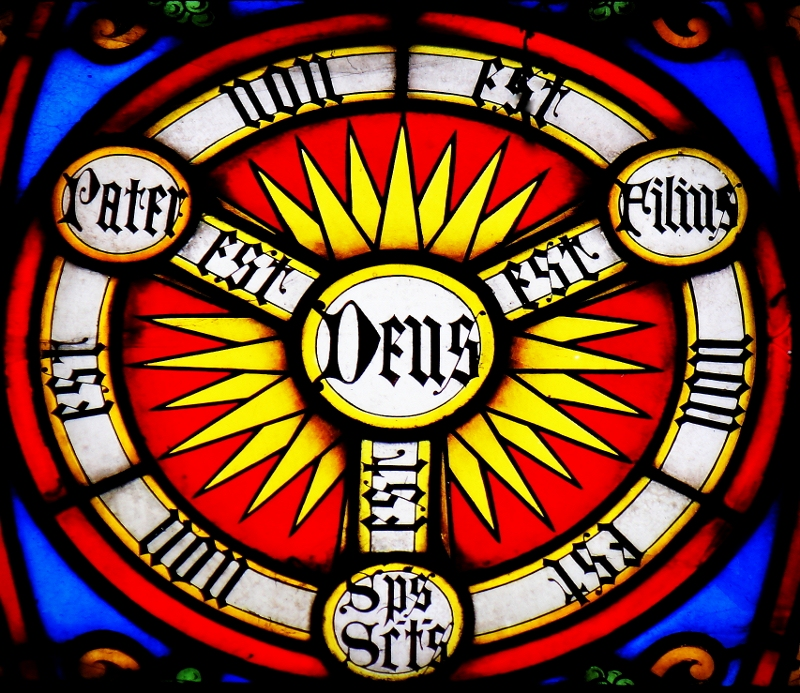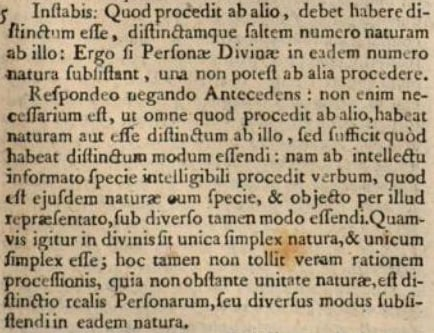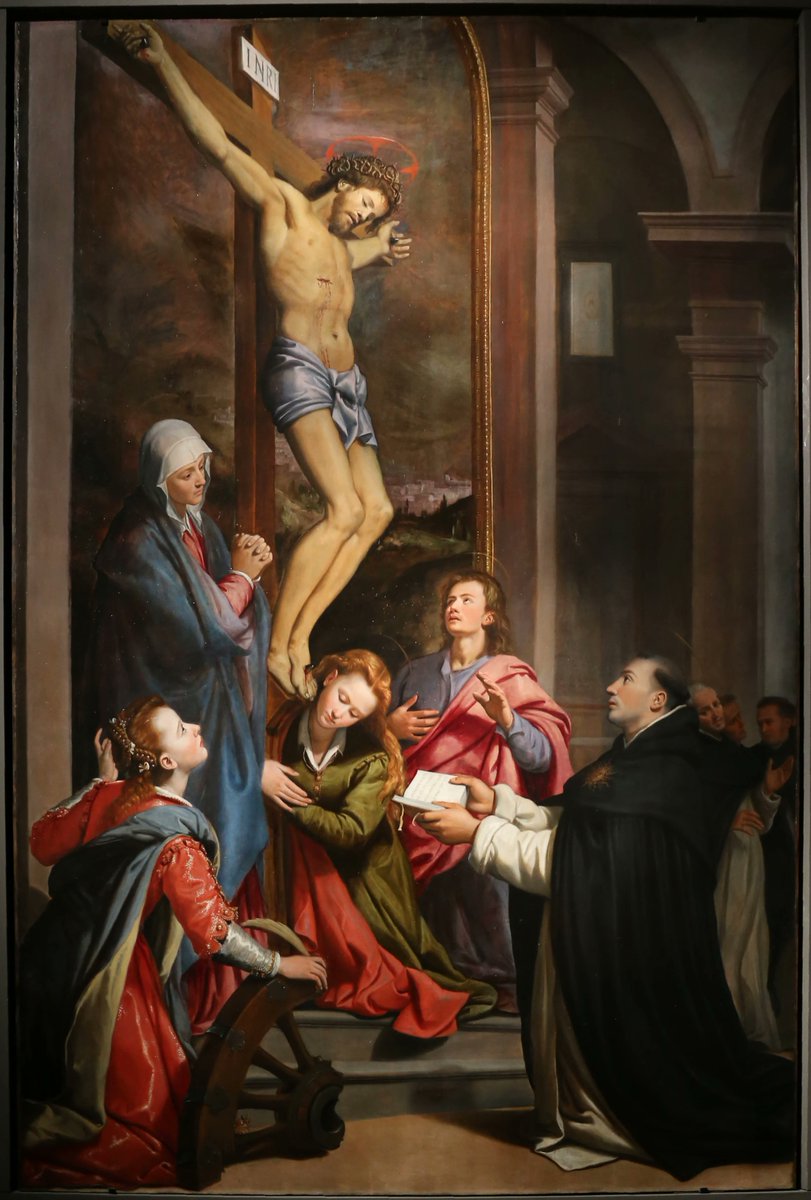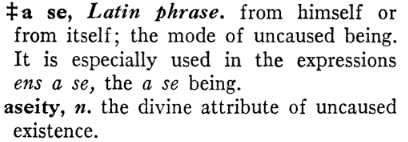🧵 A Brief Refutation of the "LPT" or the Logical Problem of the Trinity
Aristotelian maxim: "Things that are identical to a third thing are [also] identical to each other." Now let's apply it to the Trinity:
Aristotelian maxim: "Things that are identical to a third thing are [also] identical to each other." Now let's apply it to the Trinity:

The Father is the divine essence. The Son is the divine essence. Therefore, the Father is the Son.
The reasoning seems to be valid, right? Well, no. Because this is only true if the persons were both materially and formally identical with the divine essence. Explanation:
The reasoning seems to be valid, right? Well, no. Because this is only true if the persons were both materially and formally identical with the divine essence. Explanation:
Material identity is identity in entity or reality. Therefore things which are really distinct are materially distinct. But the Father and the Son are not really distinct from that third entity or thing, namely, the divine essence.
On the other hand, formal identity is identity in the same proper nature, or in the same definition. Therefore things are formally distinct which are distinct according to their nature, or definitions.
E.g.: Man is a rational animal, there is no formal identity between animal and rational, because the definition of animal is different from the definition of rational; but there is material identity in this case, because man is an animal and rational by the same entity or nature.
But the concepts of paternity and filiation differ from the divine essence, for one is relative, the other, absolute. Hence, there's a diversity of notions in God, but not a diversity of distinct realities or entities.
For this reason, St. Thomas says that this maxim is true only if they're identical to the third thing both in reality and in concept, but not if they're identical only in reality, yet diverse in concept or notion. (Cf. ST. I, q. 28, a. 3, ad 1) 
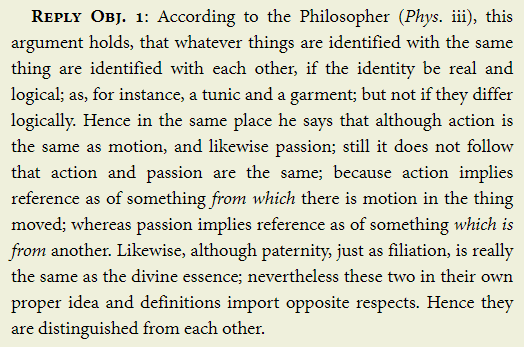
Thus, since the persons are really the same as the divine essence, but not the same notionally or in concept, they're not synonymous terms or concepts. Hence, the formal concepts of paternity and filiation oppose each other, which suffices for a real distinction.
And since the opposites cannot be identified, and the paternity and filiation imply opposition, they're really distinguished. From this we can conclude that the Aristotelian maxim is verified in the Divine realm as well, but what opponents miss is material and formal identity.
Fr. Emmanuel Doronzo, O.M.I. (1903-1976) last of Scholastic manual writers responds to this objection in his Theologia Dogmatica, vol. 2 in the following manner: 

And this is how one can escape the "Logical problem of the Trinity" which is used by Muslims and infidels against the Christians.
The end. 🧵
The end. 🧵
• • •
Missing some Tweet in this thread? You can try to
force a refresh

 Read on Twitter
Read on Twitter



